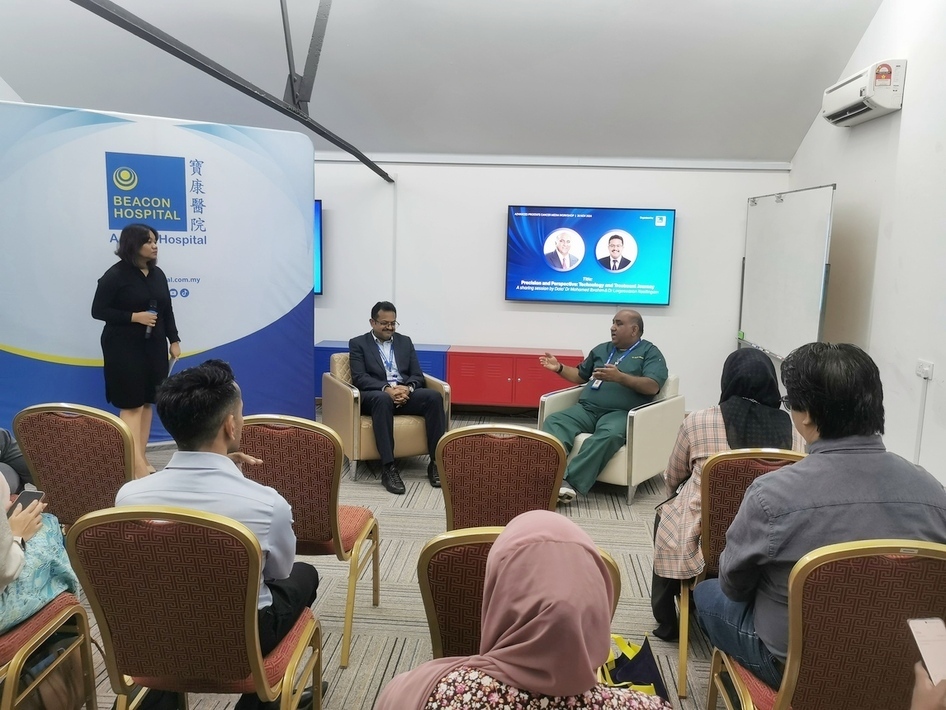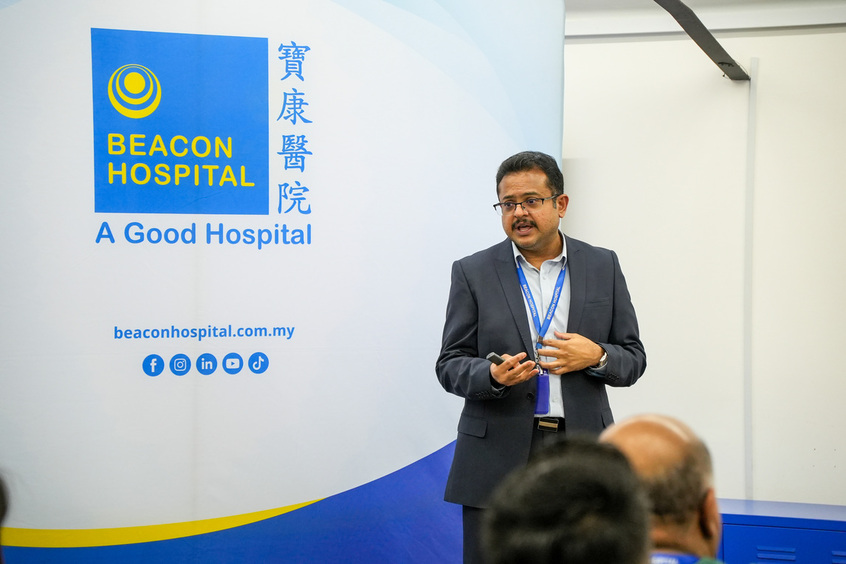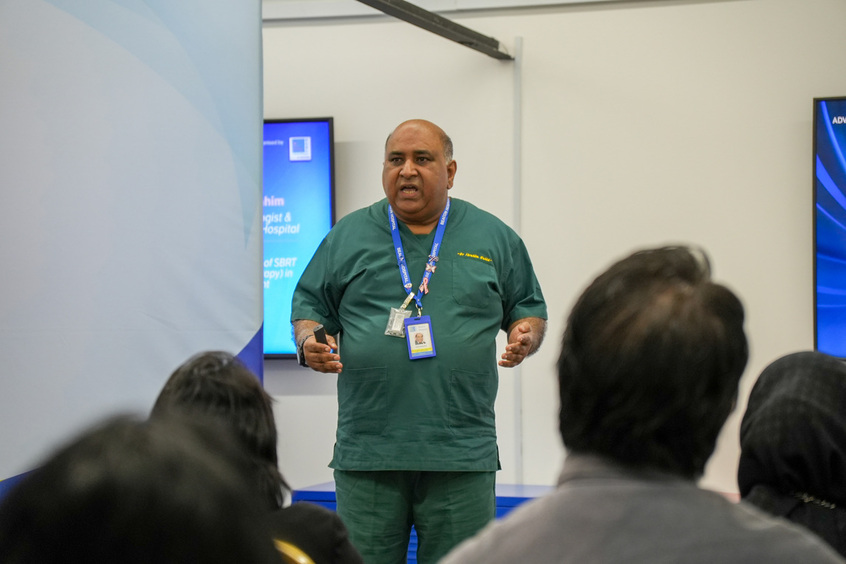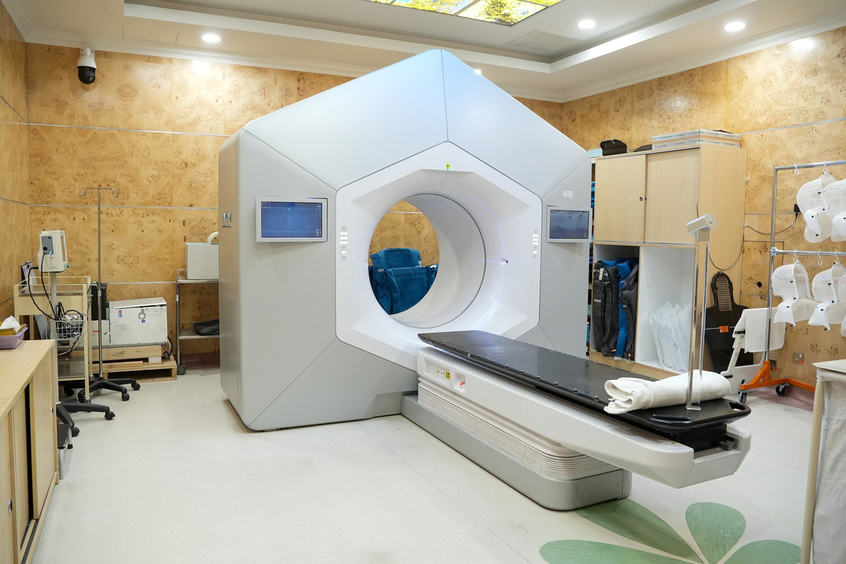
In recognition of Movember, Novartis Malaysia, a multinational pharmaceutical company, and Beacon Hospital, Petaling Jaya joined forces to host a workshop with the purpose of raising awareness about advanced prostate cancer and the importance of early detection and innovative treatments.
The collaboration aimed to highlight the critical importance of early detection. It also focused on sharing the recent breakthroughs in prostate cancer diagnostics and treatments, including PSMA (Prostate-Specific Membrane Antigen) screening and Stereotactic Body Radiotherapy (SBRT).
According to the Malaysia National Cancer Registry Report 2017-2021, prostate cancer is the third most common cancer among men.
With nearly 70% of prostate cancer cases in Malaysia diagnosed at advanced stages, this initiative aims to educate the public and medical community on the significance of timely screening and the latest advancements in precision medicine.
Held at Beacon Hospital on Nov 26, 2024, the workshop brought together medical experts, advocates and members of the public to promote awareness and offer Malaysian men new hope in the face of a challenging diagnosis.
The event featured presentations and expert insights from Beacon Hospital’s Dato’ Dr Mohamed Ibrahim A Wahid, consultant clinical oncologist and medical director, and Dr Lingeswaran Kasilingam, consultant nuclear medicine physician.
They highlighted PSMA (Prostate-Specific Membrane Antigen) imaging as the preferred diagnostic tool for prostate cancer, emphasizing its accuracy, charting out optimal treatment strategies that lead to potentially improving treatment outcomes.
PSMA-imaging allows for precise detection of cancer cells at an earlier stage, facilitating personalized treatment plans, increasing the likelihood of successful outcomes, and potentially determining eligibility for certain treatments, such as Radioligand Therapy (RLT).

Dr Lingeswaran spoke about the life-saving potential of PSMA screening.
“PSMA screening represents a transformative advancement in our ability to detect prostate cancer with high precision.
“By using advanced imaging to identify cancer cells at an early stage, even in small and hard-to-detect tumors, PSMA screening enables us to intervene sooner and create personalized treatment plans for each patient with the possibility of assessing suitability for RLT.
“This technology gives high-risk men in Malaysia a much-needed chance for earlier intervention, which can significantly improve outcomes,” he said.

Dato’ Dr Mohamed Ibrahim highlighted SBRT as one of the innovate treatment options for prostate cancer patients, stating, “Stereotactic Body Radiotherapy (SBRT), allows us to deliver high doses of radiation directly to the tumor with extreme precision, minimizing damage to surrounding healthy tissue.”
He explained, “For patients with advanced-stage prostate cancer, this approach means fewer treatment sessions, reduced side effects, and ultimately a better quality of life. SBRT is among the advancements redefining prostate cancer care, offering patients new hope and a better path forward.”

Melissa Hon, the country head, communications and patient advocacy at Novartis Malaysia said, “Our collaboration with Beacon Hospital is significant as it educates patients on the latest diagnostics and advancements in innovative therapies for prostate cancer. This underscores our commitment to providing hope and better outcomes for those affected by this challenging disease.”
Hon said Novartis Malaysia is also committed to raising awareness and supporting cancer patients through its ICanCare app, a digital platform that provides appointment and medication reminders, educational resources and psychosocial service support.
“By expanding access to innovative therapies and support, Novartis aims to improve outcomes and quality of life for prostate cancer patients, particularly those in rural areas or with limited mobility, ensuring they are supported at every stage of their journey,” she said.
The event concluded with a Q&A session, where participants engaged with the experts to gain deeper insights into prostate cancer care and the impact of innovative treatment options.







